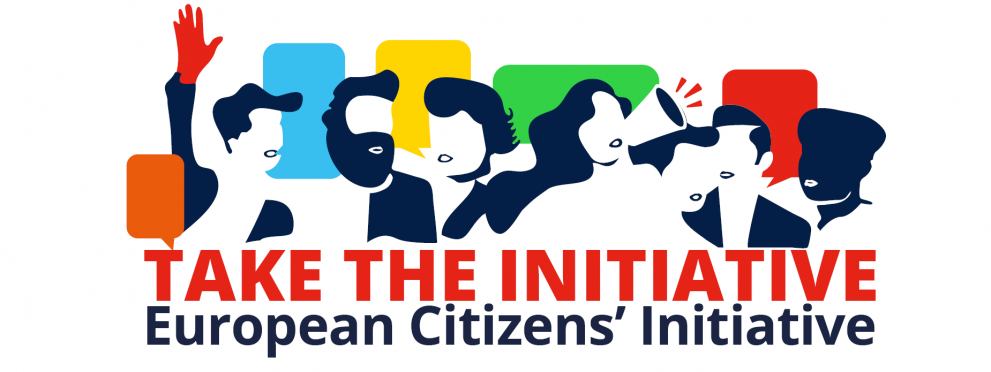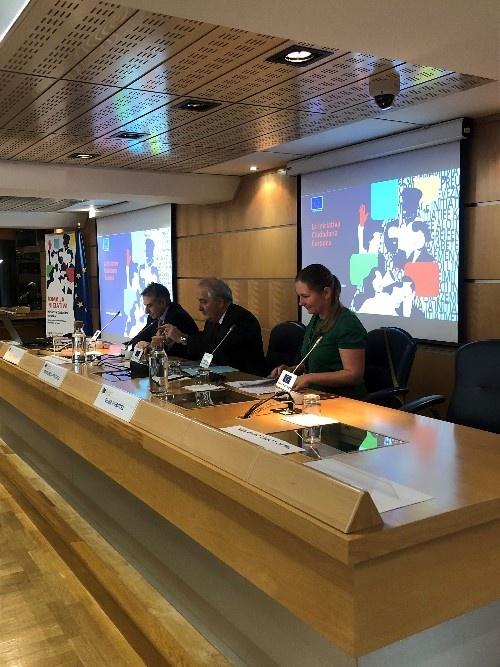
The European Citizens' Initiative team organised a knowledge-sharing workshop at the European Commission Representation in Madrid on 13 November to discuss the tool and participatory democracy in Europe and Spain. The event gathered experts in the field, representatives of the Spanish government and citizens eager to play a bigger role in EU policy-making.
Getting everyone involved!
Francisco Fonseca, Head of the Representation of the European Commission in Spain, and Raul Fuentes, Deputy General Director of Institutional Affairs at the Ministry of Foreign Affairs, European Union and Cooperation, kicked-off the workshop. They both shared anecdotes on participatory democracy and the impact it can have on society.
Olga Kurpisz, Policy Officer in the European Commission, then provided the participants with some facts on the European Citizens’ Initiative and presented the key features of the reform of the tool. Indeed, as of January 2020, new rules simplifying the procedure will apply. The European Commission wants to make the instrument more accessible to citizens. A focus was given to the collaborative Forum, set up by the Commission, which provides information and guidance about the process of coordinating an initiative, and provides space to discuss ideas, enhance your network of partners and supporters and get independent legal assistance.
After brushing-up on their knowledge on the European Citizens’ Initiative, the participants engaged in a debate, moderated by Enrique Montes, President of the Amigos MIRA foundation in Spain, and with the participation of Olga Kurpisz and Julio Lopez, representative of the Regional federation of Neighbourhood associations in Madrid.
The debate centred on the idea that although the tool works at EU level, it is important to raise awareness in local communities. This way, citizens can relate to it more easily and picture what change can occur in their own daily lives. Julio Lopez shared his experience with a bottom-up approach to neighbourhood participation and emphasised the need to promote such tools more locally. He explained that initiatives could positively affect all levels of society including neighbourhoods.
The panel discussion was followed by a group conversation, during which participants had the opportunity to actively discuss challenges and come up with ideas on how to run a successful citizens’ initiative campaign.
Using the resources that are available to you
During the group discussion participants voiced their concerns about raising funds and reaching the required number of signatures.
They explained that campaigning is embedded in a challenging pattern of raising resources, needing to find partners and communicating efficiently. All of this, however, needs resources to begin with and achieve these goals.
Speakers and experts provided guidance on the tools available to organisers such as a ready-to-use at no cost online collecting system, free translation services, etc.
The participants came up with some suggestions to make campaigning more manageable:
- Using the tools provided by the Commission when explaining the European Citizens’ Initiative to potential supporters for communication purposes;
- Keeping in touch with your partners (Skype calls, setting small goals etc.)
- Organising fun events such as “fiestas” and inviting your local network;
- Carrying out a well-targeted social media campaign, asking your network to get involved and share.
Being successful despite the number of signatures
An important part of the discussion related to the conversations an initiative can create and the importance of focusing on the success of the campaign rather than the number of signatures collected.




Leave a comment
To be able to add comments, you need to authenticate or register.